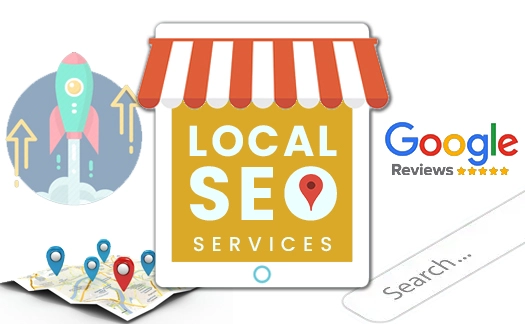Hyper-Local SEO Strategies for Small Businesses
Introduction
If you’re a small business owner, you've probably wondered how to attract more local customers. The answer lies in hyper-local SEO. But what exactly is hyper-local SEO? It’s all about tailoring your online presence to reach customers in a specific, small geographical area. Think of it as zooming in on a map to capture the attention of people right in your neighborhood.
In today’s digital world, hyper-local SEO is essential for small businesses to compete. Why? Because it helps you stand out in local searches, drive foot traffic, and boost sales without stretching your marketing budget.
Understanding the Basics of Local SEO
The Role of Local SEO in Business Growth
Local SEO Service isn’t just a trend—it’s a necessity. When people search for products or services, they often include phrases like “near me” or their city name. A solid local SEO strategy ensures your business appears in these searches, putting you right in front of potential customers.
Key Elements of Local SEO
- Accurate business information (Name, Address, Phone - NAP).
- Google My Business (GMB) profile.
- Local keywords.
- Online reviews and ratings.
The Importance of Google My Business (GMB)

Setting Up Your GMB Profile
If you don’t already have a Google My Business profile, you’re missing out. Setting it up is easy:
- Visit Google My Business and sign in.
- Add your business details, including accurate NAP info.
- Verify your listing via mail or phone.
Optimizing GMB for Better Visibility
Add photos, business hours, and a compelling description. Use relevant local keywords to help your profile appear in local search results. Don’t forget to keep your information updated.
Leveraging Local Keywords
Identifying Hyper-Local Keywords
Keywords are the backbone of SEO, and hyper-local ones are your golden ticket. For example, instead of “coffee shop,” use “coffee shop in Andheri West.”
Tools to Find Relevant Keywords
- Google Keyword Planner
- Ubersuggest
- Ahrefs
How to Use Keywords Strategically
Place them in your website’s meta descriptions, headers, blog posts, and even image alt texts.
Building Local Citations
What are Local Citations?
These are mentions of your business on other websites, including directories like Yelp and Justdial.
Importance of Consistent NAP Information
Inconsistent NAP information can confuse search engines and potential customers, lowering your ranking.
Top Platforms for Local Citations
- Google My Business
- Bing Places
- Local directories (e.g., Sulekha, IndiaMART)
Online Reviews and Their Impact
The Power of Positive Reviews
Good reviews not only boost your reputation but also improve your rankings.
Strategies to Encourage Customer Reviews
- Ask for reviews at checkout.
- Send follow-up emails with review links.
Handling Negative Reviews Professionally
Respond promptly, acknowledge the issue, and offer a solution.
Localized Content Marketing

Writing Content for Local Audiences
Create blog posts about local events or community stories to connect with your audience.
Creating a Blog Around Local Interests
Highlight topics like “Best Restaurants in [Your Area]” or “Top Activities in [Your City].”
Using Videos and Visuals to Attract Local Customers
A short video showcasing your shop or services can make a big impact.
Mobile Optimization
Why Mobile Optimization is Critical
Most local searches happen on mobile devices, making a mobile-friendly website a must.
How to Make Your Website Mobile-Friendly
- Use responsive design.
- Ensure fast loading speeds.
Geo-Targeted Advertising
Using Pay-Per-Click (PPC) for Local Targeting
Platforms like Google Ads let you target customers within a specific radius.
Social Media Ads with Location-Specific Targets
Use Facebook or Instagram ads to zero in on your local audience.
The Role of Social Media in Local SEO
Engaging with Your Local Community
Post updates, run contests, and engage with comments to build trust.
Best Social Media Platforms for Local Businesses
Focus on Facebook, Instagram, and WhatsApp for better local engagement.
Local Backlink Building
Collaborating with Other Local Businesses
Partnerships can lead to mutual backlinks and greater exposure.
Sponsoring Local Events for Links
Participating in or sponsoring events can earn you valuable backlinks.
Tracking and Measuring Your Results
Tools to Track Local SEO Performance
- Google Analytics
- Moz Local
Metrics to Monitor
Keep an eye on local traffic, rankings, and engagement rates.
Challenges in Hyper-Local SEO
Common Mistakes to Avoid
- Ignoring mobile users.
- Skipping local keywords.
Tips for Overcoming Challenges
Stay consistent and adapt to local trends.
Future Trends in Local SEO
Voice Search and Its Impact on Local SEO
With more people using voice assistants, optimize for conversational keywords.
The Growing Role of Artificial Intelligence
AI tools can help analyze customer behavior and predict trends.
Conclusion and Takeaways
Hyper-local SEO is your secret weapon for standing out in a crowded marketplace. By implementing these strategies, you’ll attract local customers, build trust, and grow your business.
FAQs
-
What is the difference between local SEO and hyper-local SEO?
Local SEO targets a broad area, while hyper-local SEO focuses on a very specific geographical location. -
How can small businesses use local SEO services in India?
By partnering with local SEO agencies that understand the Indian market and its nuances. -
What tools are best for tracking local SEO performance?
Google Analytics, Moz Local, and SEMrush are excellent tools. -
Why is Google My Business essential for local SEO?
It enhances your visibility in local searches and builds customer trust. -
How long does it take to see results from local SEO efforts?
Typically, it takes 3–6 months to see significant improvements, but it depends on your industry and competition.












